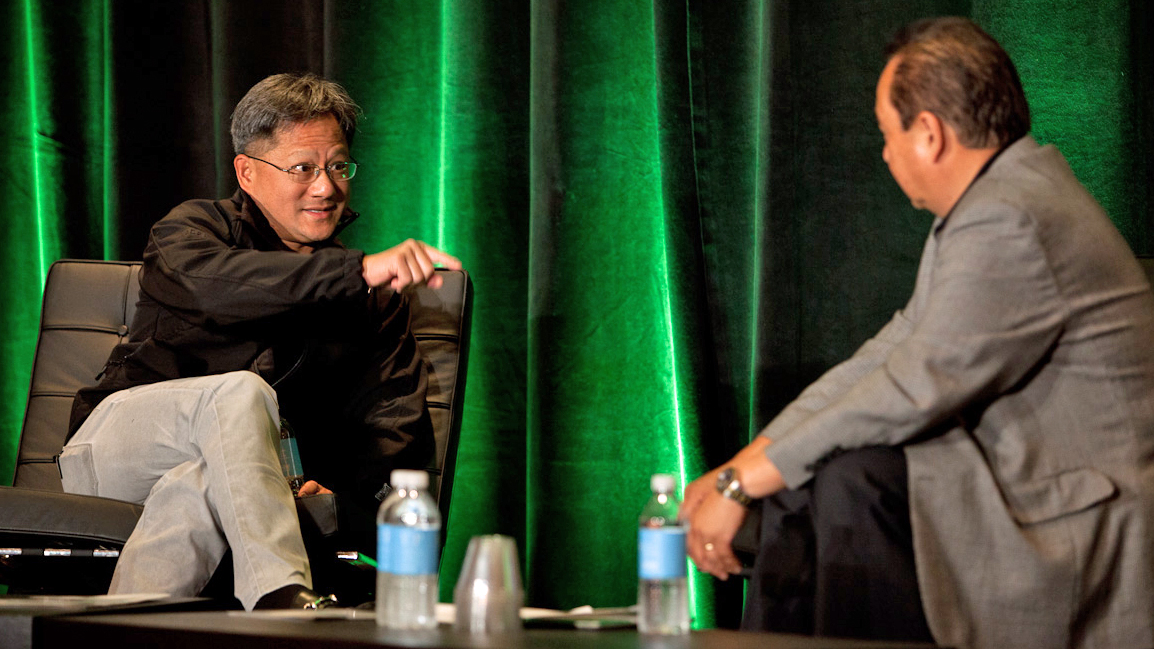Nvidia: Windows RT should be different from Windows 8
CEO Jen-Hsun Huang thinks Microsoft's strategy is right

Google and Mozilla may be complaining that Windows RT is different from Windows 8 and that it's more locked down, but Nvidia CEO Jen-Hsun Huang told attendees at the
that although he was originally doubtful, now he thinks having two versions of Windows is a good idea.
"It was genius to separate Windows 8 and Windows RT. You can't reposition what a PC is any more. If [Microsoft] want to create a new computing platform that has virtues in that you can see documents from the PC universe, yet it's exquisitely designed - you can't do this in a Windows x86 design. "
If you prefer Windows 8 to Windows RT (or vice versa), that's fine as well; no single technology suits everyone and Huang is looking forward to the mix of devices which will be more than just tablets, for both versions of Windows.
"Computers are like cars. Some have two doors, some have four, or five doors; some have seven seats. [Different designs] are different strokes for different folks. You'll have some that have keyboards, some that don't, some will be gesture based, some won't."
Nvidia happy with Windows on any device
You'd expect Nvidia to back Windows RT because it will run on Tegra processors, but of course Nvidia is happy to see Windows 8 on GeForce graphics cards as well. Kepler-based gaming clouds and virtual GPUs will give Windows RT devices extra options the way they do for iOS and Android.
Are you a pro? Subscribe to our newsletter
Sign up to the TechRadar Pro newsletter to get all the top news, opinion, features and guidance your business needs to succeed!
The only Windows devices that Nvidia hardware won't show up in are Intel and AMD's low-power System on Chip designs which aim to combine the long battery life and light weight of ARM devices with the compatibility; so it makes sense for Nvidia to back the idea of two distinct systems.
But Huang thinks it's too soon to decide what style of mobile devices and operating systems are going to succeed, or even who will partner up and who will compete.
"We're early [on] in the development of mobile computing. All of the disparate elements need to be integrated. Everyone's got an opinion: Microsoft's got an opinion, Apple's got an opinion, Oracle's got an opinion. And the alignment of these interested parties isn't likely in the early stages of a new market. Give it a little bit of time, and I think the horizontal structure of the industry will become an advantage."
That could mean much more specialised devices for different markets. "Over time, what works for the mainstream isn't going to be desirable for the extremes," he pointed out. Personal taste, different needs and even fashion make it unlikely that any one device will triumph. "If everyone in this room has an iPhone, nobody's special."
Mary (Twitter, Google+, website) started her career at Future Publishing, saw the AOL meltdown first hand the first time around when she ran the AOL UK computing channel, and she's been a freelance tech writer for over a decade. She's used every version of Windows and Office released, and every smartphone too, but she's still looking for the perfect tablet. Yes, she really does have USB earrings.
Most Popular

